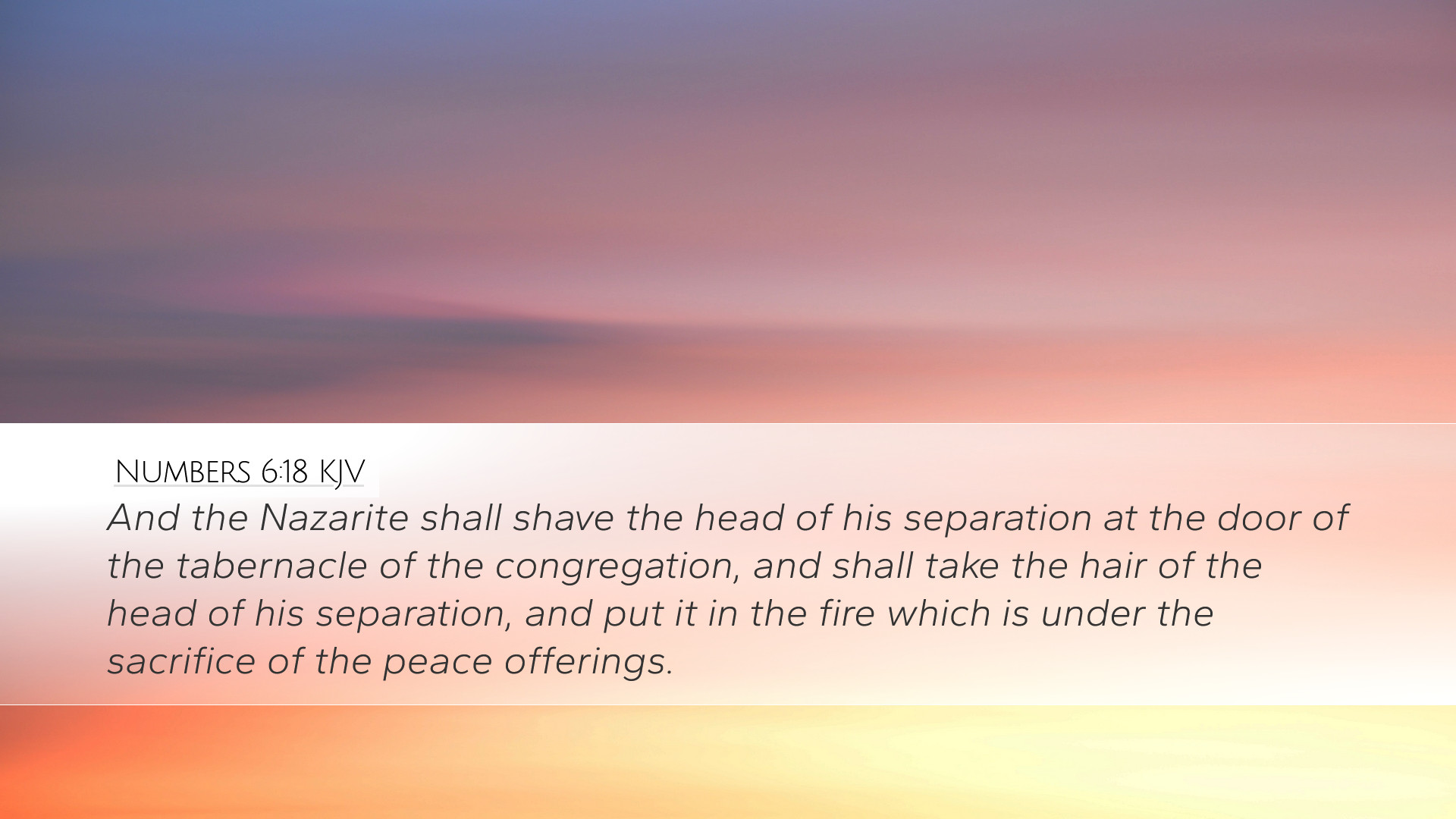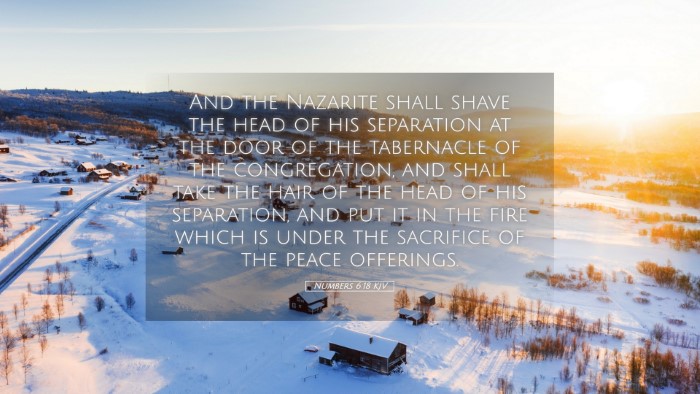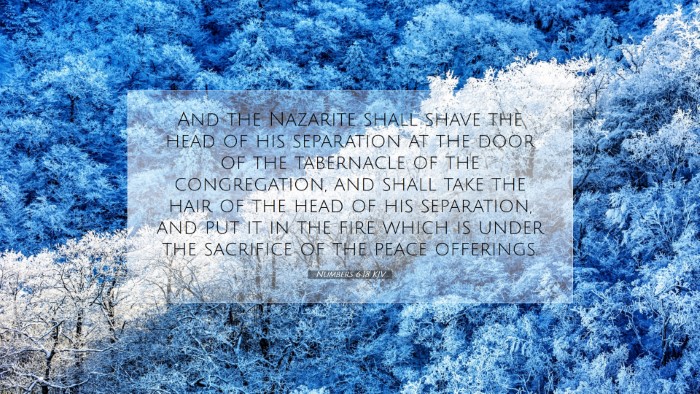Commentary on Numbers 6:18
Numbers 6:18 states: "And the Nazarite shall shave the head of his separation at the door of the tabernacle of the congregation, and shall take the hair of the head of his separation, and put it in the fire which is under the sacrifice of the peace offerings." This verse is pivotal in understanding the Nazarite vow and its conclusion, signifying a transition from dedication to normalcy.
Introduction to the Nazarite Vow
The Nazarite vow, as outlined in Numbers 6, encapsulates a profound expression of devotion to God. This vow often involved abstaining from wine, avoiding contact with the dead, and maintaining uncut hair. The culmination of this vow, described in this verse, reflects a significant ritualistic act that encapsulates the themes of dedication, sacrifice, and communal worship.
Exegesis of Key Elements
Let us delve into some key components of this verse, drawing insights from notable commentaries:
-
The Act of Shaving:
Matthew Henry remarks that the shaving of the head signifies the completion of the period of separation. The hair, a symbol of dedication, is now relinquished. This act can be viewed as an offering to God, symbolizing total surrender and a return to the community.
-
The Location - Door of the Tabernacle:
Albert Barnes emphasizes the significance of the tabernacle's door. This is the place where divine encounter occurs, highlighting that the vow is framed within communion with God. Such is the nature of sacred commitments; they are made and broken in the presence of the Divine.
-
The Hair in the Fire:
Adam Clarke elucidates that the act of burning the hair under the peace offerings demonstrates a tangible connection between the vow and the sacrificial system. It signifies that the vow, now fulfilled, is acceptable to God and marks a moment of transition, imbued with thanksgiving.
Theological Implications
The act described in Numbers 6:18 transcends mere ritual; it encapsulates deeper theological themes:
-
Dedication:
This passage illustrates the profound act of dedicating oneself to God. The Nazarite's commitment and the ceremonial act of shaving signify that true dedication is transformative, requiring the relinquishing of personal desires for divine purposes.
-
Community and Worship:
The communal aspect of the Nazarite vow is profound. As individuals fulfill their vows, they do so within the context of the congregation, emphasizing unity and collective worship. The act of offering hair reflects a shared commitment to God that strengthens communal bonds.
-
Sacrifice and Acceptance:
The hair being burned under the peace offerings typifies the belief that the fulfillment of vows should be accompanied by offerings that acknowledge God's role in the journey. The act of sacrifice, therefore, is integral to a faithful life, highlighting acceptance before God.
Practical Applications for the Believer
From this verse and its commentary, several applications emerge for believers today:
-
Embrace Sacred Moments:
Just as the Nazarite experienced a transformative journey, believers today are called to recognize moments of separation for God. This may manifest in seasonal periods of prayer, fasting, or spiritual dedication.
-
Community Engagement:
The Nazarite vow shows that personal commitments are best expressed within community. Engaging in the body of Christ fosters growth and accountability as each member supports one another in their spiritual journeys.
-
Understanding Sacrifice:
Every commitment to God involves an element of sacrifice. Believers are encouraged to lay down personal desires and ambitions in pursuit of God's will, embodying the essence of the peace offering in their daily lives.
Conclusion
Numbers 6:18 encapsulates a moment of spiritual significance that is rich with meaning for pastors, students, theologians, and Bible scholars alike. It reminds us of the beauty of sacred commitments and the joy found in fulfilling our vows to God. The insights drawn from the combined resources of Matthew Henry, Albert Barnes, and Adam Clarke serve to enrich our understanding of the Nazarite vow's conclusion, illuminating the journey of dedication, community, and sacrifice that every believer is called to navigate.


